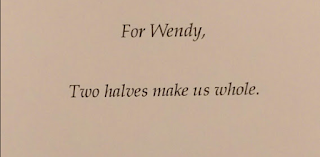I have placed my favorite additional resources at the top
of this blog post for the ease of my classmates’ reading. Since we all have
access to and will post the course resources I felt it made sense to place
those I love in addition to the course resources at the top. Also, even though
the course list includes Young Children Magazine in the Journal section I have
included the website where you can access a number of the articles. If you are
a member of NAEYC you can access all of the journals online. This will be
valuable once we are out of school and no longer have access to the Walden
Library. I hope some of these resources will be valuable to you!
My
Favorite Additional Resources
Books:
Ø Coaching With Powerful Interactions: A Guide for
Partnering with Early Childhood Teachers- Amy Laura Dombro, Judy R. Jablon, and
Shaun Johnsen This is a great book that
shows the parallel process of teaching children through Powerful Interactions
and teaching adults through the same principles.
Ø Developmentally Appropriate Practice in Early Childhood
Programs Serving Children from Birth Through Age 8- Carol Copple & Sue
Bredekamp, Editors This title is one of critical importance in understanding
the foundations of best practice.
Ø Mind in the Making: The Seven Essential Life Skills Every
Child Needs- Ellen Galinsky This book is
a fascinating look into how the brain is wired at birth and what essential
skills children need to succeed in life.
Ø Last Child in the Woods: Saving Our Children from
Nature-Deficit Disorder- Richard Louv
This book looks at the importance of connecting children with nature a
subject that I feel gets far too little attention.
Ø Powerful Interactions: How to Connect with Children to
Extend Their Learning- Amy Laura Dombro, Judy R. Jablon, Charlotte Stetson
This is one of the books that I have used with teachers regularly to help them
understand the importance of intentional conversations with children and how to
use a sense of wonder to connect with them.
Ø The Intentional Teacher: Choosing the Best Strategies for
Young Children’s Learning- Ann S. Epstein
This book focuses on how to give children experiences based on their
learning style, their needs, and their interests.
Ø The Visionary Director: A Handbook for Dreaming,
Organizing, and Improvising in Your Center- Margie Carter & Deb Curtis This is a great read for any leader (director
or not) who wants to use their vision to make change and to lead with intention.
Ø Designs for Living and Learning: Transforming Early
Childhood Environments- Margie Carter & Deb Curtis The pictures of beautiful spaces, alone, in
this book make it worth owning!
Websites:
ü http://www.naeyc.org/
The National Association for the Education of Young Children (NAEYC) is a
leader in the field of Early Childhood Education
ü http://www.naeyc.org/yc/ Each quarter a new issue of Young Children (YC)
magazine is published by the National Association for the Education of Young
Children (NAEYC) and several of the articles are available online at this site
ü http://www.cdacouncil.org/
The Council for Professional Recognition is the National provider of the Child
Development Associate (CDA) and also provides other professional development
opportunities
ü http://www.ooeygooey.com/
Lisa Murphy, The Ooey Gooey Lady, is a nationally recognized leader in the ECE
community. Her website offers several resources including
o Articles
o Lists of her favorite books (for both ECE educators and
children)
o “Recipes” for tools and activities to use with children
o And a whole lot more!
ü http://nieer.org/
National Institute For Early Education Research:
Learn about the status of early education, the latest research in the field,
legislation, and standards and policies
Resources from EDUC 6005 (Week 5):
Part 1: Position Statements and
Influential Practices
·
Turnbull,
A., Zuna, N., Hong, J. Y., Hu, X., Kyzar, K., Obremski, S., et al. (2010).
Knowledge-to-action guides. Teaching Exceptional Children, 42(3), 42-53.
Retrieved from the Walden Library databases.
Part 2: Global Support for Children's
Rights and Well-Being
·
Websites:
·
Association
for Childhood Education International
http://acei.org/
Click on "Mission/Vision" and "Guiding Principles and
Beliefs" and read these statements.
Part 3: Selected Early Childhood
Organizations
Part 4: Selected Professional Journals
Available in the Walden Library
·
YC Young Children
·
Childhood
·
Journal of Child & Family Studies
·
Child Study Journal
·
Multicultural Education
·
Early Childhood Education Journal
·
Journal of Early Childhood Research
·
International Journal of Early
Childhood
·
Early Childhood Research Quarterly
·
Developmental Psychology
·
Social Studies
·
Maternal & Child Health Journal
·
International Journal of Early Years
Education









